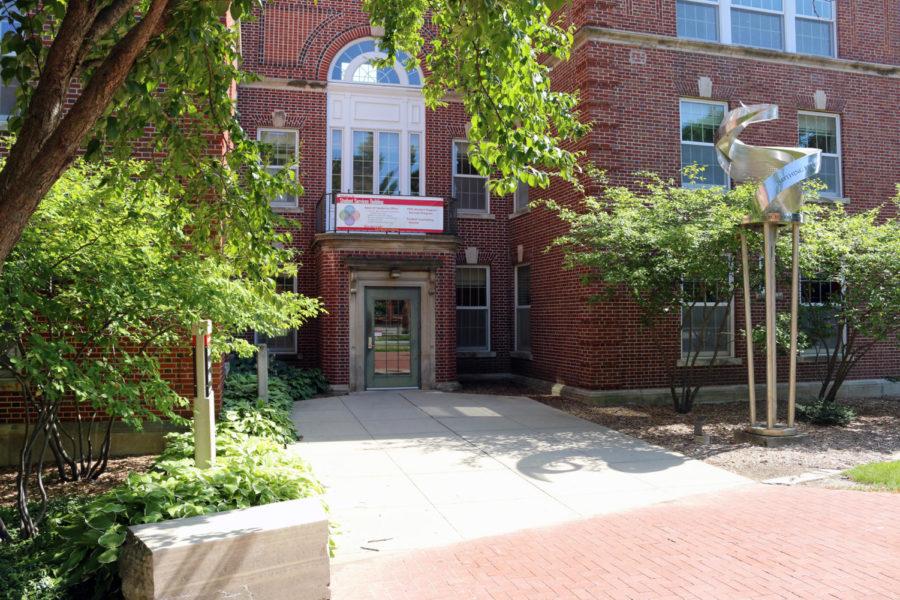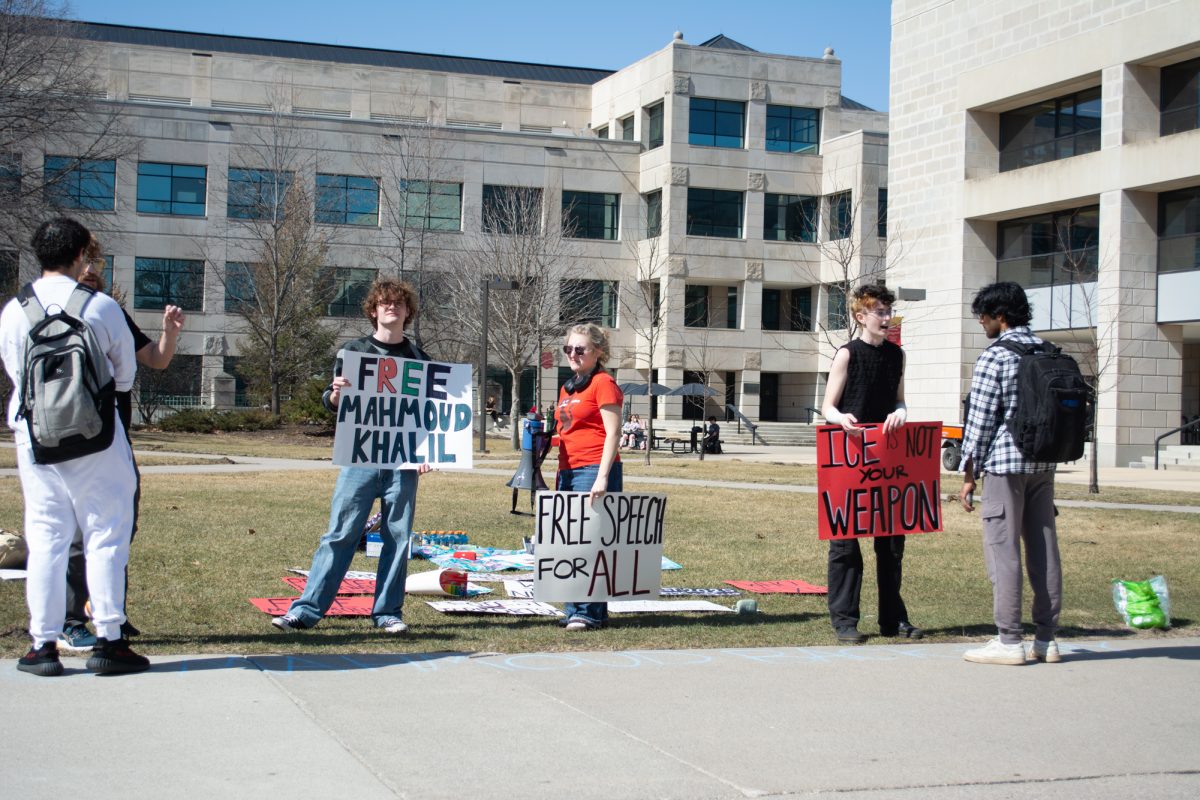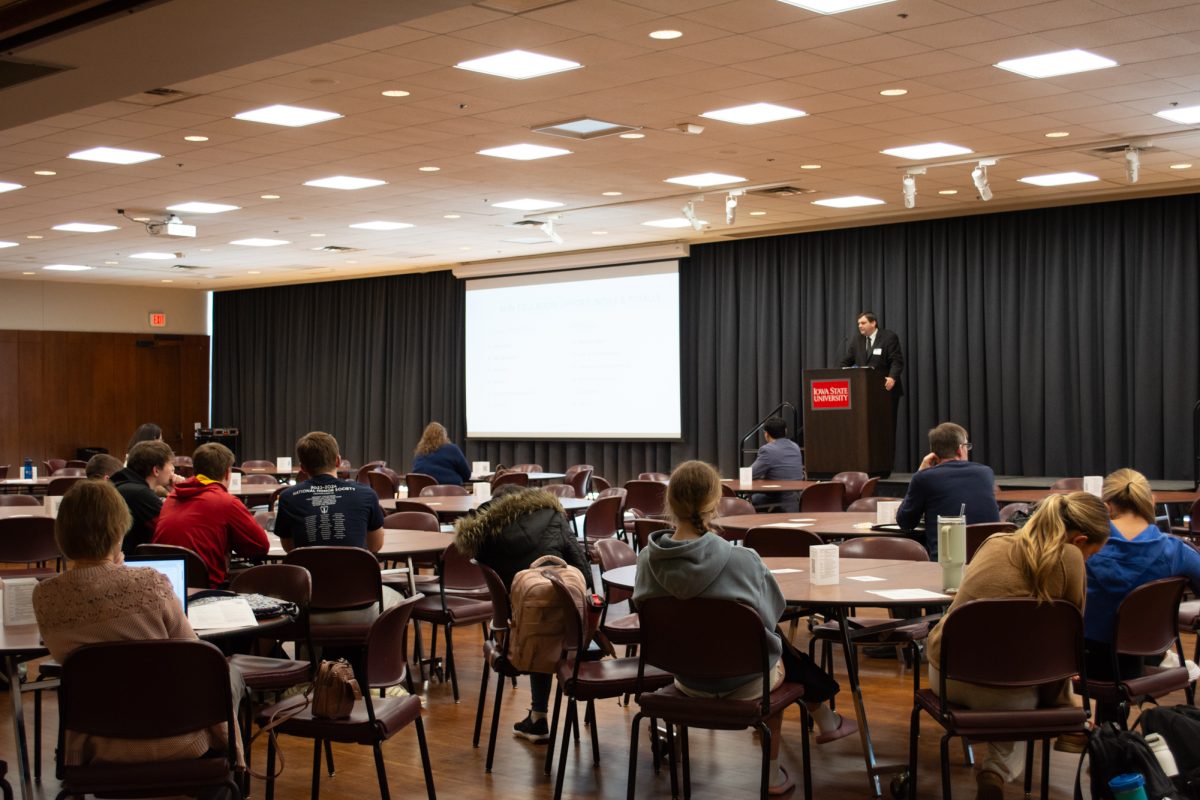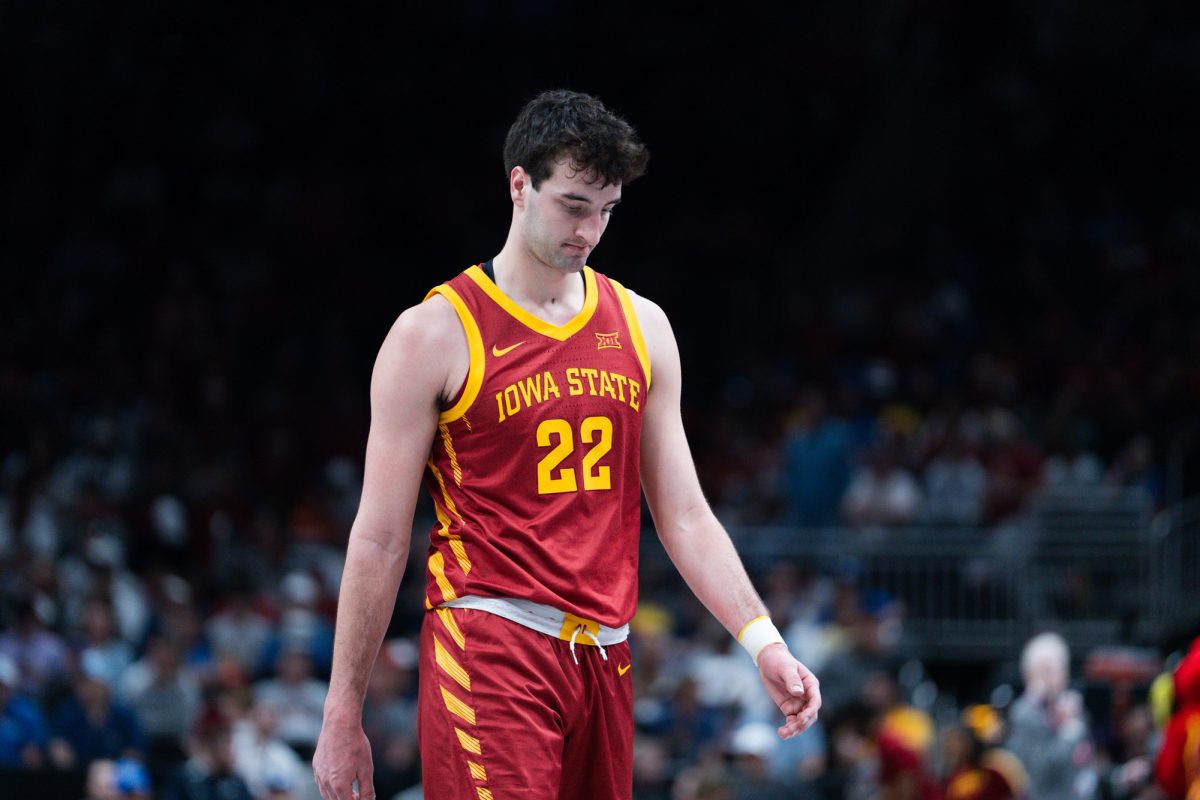Student Counseling Services hosts final forum for new director
Student Counseling Services is located on the third floor of the Student Services building. Counseling services are offered to Iowa State students to help enhance their academic and personal well-being.
April 12, 2019
Iowa State Student Counseling Services (SCS) held its final forum on Friday to choose its new director.
Christopher Hanes, a doctorate of philosophy in counseling psychology, currently serves as the associate director at the University of Cincinnati Counseling and Psychological Services. He is one of the current candidates for the position of director of SCS.
Hanes began his presentation with the programs he has implemented in his previous universities, including student lead support groups, Therapist Assistance Online (TAO) and “Let’s Talk.” He also said an interactive community would be beneficial for students they could help each other.
Hanes provided an example of his own experience with student support groups.
“I run an active anxiety group, I’ve done a lot of difference groups but grief and loss is an important one for me as well,” Hanes said. “So it’s such an important thing. I tell students imagine what it would be like talking about this issue, with eight other students that also want to talk about this issue, and how powerful it is in that type of setting, so you serve a lot of students with that.”
Hanes said there is a large importance of having an interactive community in the university setting who could create the conversation about mental health and help point students who struggle with it in the right direction. He said he would like to inform and mobilize the community about this topic through training them about suicide prevention, managing students in distress and psychological first aid.
Hanes said technology could be used as an advantage for SCS. For example, TAO is an online-based therapy service that would help students who do not have the time to come in for a counseling appointment. This type of service could be more accessible to the students schedules while they work on online therapy.
Hanes presented his plan to create an ideal student counseling service center through an interactive community, comprehensive counseling and empowering the students.
Hanes said he wants to tailor services to meet the needs of students and a step-care model — a method to determine the level of care someone needs, which would help achieve that goal.
“From a step-care model, we know that if we get the person connected to the step that’s most appropriate, they’re halfway to recovery or improvement,” Hanes said.
Hanes concluded his presentation about the power of an informed community within the university, and telling the story about how previous experience could help other students.
He said that telling the story about how a student can reclaim their mental health and how it could contribute to the university would be substantial. He said at his previous universities, graduate students that sought out help graduated at a 5 percent higher rate than students that did not reach out for help.
“That is the story right there, versus the student that says on the client satisfaction survey ‘this changed my life’ or ‘this means so much to me,” Hanes said.







